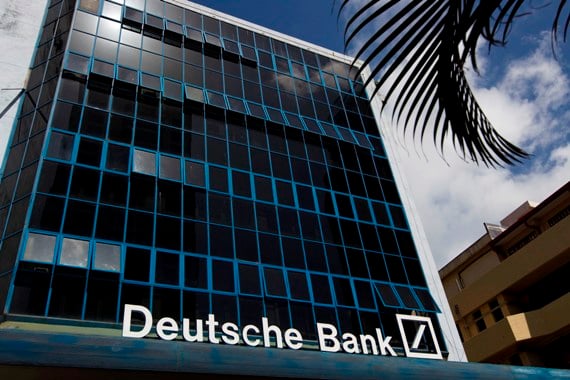A former Deutsche Bank AG analyst once ranked among the best in the U.S. will pay a $100,000 penalty and be banned from the securities industry for a year to settle a regulator's claims that he issued a buy recommendation at odds with his personal opinion.
A former Deutsche Bank AG analyst once ranked among the best in the U.S. will pay a $100,000 penalty and be banned from the securities industry for a year to settle a regulator's claims that he issued a buy recommendation at odds with his personal opinion.
Charles Grom recommended buying shares of discount retailer Big Lots Inc. in a March 29, 2012, report while telling colleagues internally that he didn't downgrade the company because he wanted to maintain his relationship with its management, the Securities and Exchange Commission said in a statement Wednesday. Mr. Grom agreed to resolve the SEC's allegations without admitting or denying wrongdoing.
“When research analysts tell clients to buy or sell a particular security, the rules require them to actually mean what they say,” Andrew J. Ceresney, head of the SEC's enforcement division, said in the statement. “Analysts simply cannot express one view publicly and the opposite view privately.”
Mr. Grom, who was named the top-ranked department store analyst in 2012 by business-to-business publisher Institutional Investor, became concerned over cautious comments Big Lots executives made the day before his report came out, according to the SEC. Despite those concerns, the agency said, he maintained his “buy” rating and told colleagues on an internal call that “we just had them in town, so it's not kosher to downgrade on the heels of something like that.”
After visiting with Big Lots executives, Mr. Grom communicated with a number of hedge fund clients about the company, the SEC said. Four of the hedge funds subsequently sold their entire positions in Big Lots stock, according to the regulator.
“Mr. Grom is pleased to put this matter behind him,” Patrick Smith, his attorney at DLA Piper in New York, said in a statement. “He looks forward to continuing his career in the future.”
SEC rules require analysts to certify that their reports reflect their own beliefs about companies they're evaluating. Wall Street banks agreed to a $1.4 billion settlement in 2003 to settle allegations that analysts published misleading stock research in a bid to win investment-banking business.







